- Mountain Biking
- Mountaineering Expeditions
- Nepal
- Other Region
- Tour in India
- Tours and Sightseeing
- Trekking / Hiking
Lower Dolpo Trekking has only been permitted since mid-1989. Lying to the west of the Kali Gandaki Valley, Dolpo is located inside the Shey-Phoksundo National Park in mid-western Nepal, behind the Dhaulagiri massif and towards the Tibetan plateau. The region offers opportunities to visit ancient villages, high passes, beautiful lakes, isolated Buddhist monasteries. In addition, you get to experience the vast array of wildlife inhabiting the region, including Blue sheep, Mountain Goat, Jackal, Wolf and the legendary Snow Leopard.
The Lower Dolpo area is isolated due to the difficult topography, Therefore, it is one of the remotest and least exposed areas of Nepal. Hence, the Lower Dolpo trek offers opportunity to meet the people and their lifestyle almost untouched and unexplored.
Visit the Shey-Phoksundo National Park and the “Tarp Valley”, which are the most interesting and lively places in western Nepal. You’ll surely feel overwhelmed by this place and its people, completely uninfluenced by modernization. The landscape, flora and fauna, picturesque mountain views, rivers and springs, flat roofed houses, chortens, monasteries and beautiful lakes are unique to this area.
This remains a truly isolated corner of Nepal and time has stood still here for centuries. Tribes from Tibet continue to live, cultivate and trade here the way they have done for hundreds of years. Most treks into Dolpo take from 14 to 30 days. The best time to trek here is towards the end of the monsoon season Sept to November. Shorter Dolpo treks are possible by flying into the air strip at Jumla.
Outline Itinerary:
01: Arrival in Kathmandu (1350m)
02: Kathmandu Sightseeing
03: Fly from Kathmandu to Nepalgunj
04: Fly from Nepalgunj to Jhupal (Dolpo 2320m) and trek to Dunai (2850m): 2-3 hrs walk
05: Dunai to Tarakot (2543m): 5-6 hrs
06: Tarakot to Khani Gaon (2543m): 3-4 hrs
07: Khani Gaon to Tarap Khola (3450m): 4-5 hrs
08: Tarap Khola to Yak Kharka (3800m): 4-5 hrs
09: Yak Kharka to Dho Tarap (4090m): 5-6 hrs
10: Rest and acclimatization day
11: Dho Tarap to Tokyu Gaun (4200m): 5-6 hrs
12: Tokyu Gaun to Numala base (4665m): 4-5 hrs
13: Cross Numa La (5309m), camp at Pelung Tang (4465m): 6-7 hrs
14: Cross Baga La (5070m), camp at Dajok Tang (4080m): 5-6 hrs
15: Dajok Tang to Ringmo (3600m): 3-4 hrs
16: Rest day at Ringmo, hike to the Phoksundo Lake
17: Ringmo to Shyangta (2520m): 5-6 hrs
18: Shyanta to Jhupal: 5-6 hrs
19: Flight to Kathmandu via Nepalgunj
20: Bhaktapur Sightseeing and the rest of the day free
21: Final departure
Arrival in Kathmandu (1350m)
Kathmandu Sightseeing
It is a Hindu temple devoted to Lord Shiva, located beside the Bagmati River. It is one of the most significant temples for the Hindu devotes around the world and the UNESCO site. The golden pagoda style temple is richly carved with silver doors. On the day of Shivaratri, a big fair is held around the month of February/March.
Boudhanath Stupa:
One of the biggest Stupas in the world, is located on the east in Kathmandu. It stands with four pairs of eyes in the four prime direction, keeping watch for virtuous behaviour and human success. King Man Deva at the advice of the Goddess Mani Jogini had built this remarkable Stupa. The Stupa resembles the Mahayana philosophy.
Fly from Kathmandu to Nepalgunj
Fly from Nepalgunj to Jhupal (Dolpo 2320m) and trek to Dunai (2850m)
Walking time: 2-3 hours
Dunai to Tarakot (2543m)
Walking time: 5-6 hours
Tarakot to Khani Gaon (2543m)
Walking time: 4 hours
Khani Gaon to Tarap Khola (3450m)
Walking time: 4-5 hours
Tarap Khola to Yak Kharka (3800m)
Walking time: 4-5 hours
Yak Kharka to Dho Tarap (4090m)
Walking time: 5-6 hours
Rest and acclimatization day
Dho Tarap to Tokyu Gaun (4200m)
Walking time: 5-6 hours
Tokyu Gaun to Numala base (4665m)
Walking time: 4-5 hours
Cross Numa La (5309m), camp at Pelung Tang (4465m)
Walking time: 6-7 hours
Cross Baga La (5070m) and camp at Dajok Tang (4080m)
Walking time: 5-6 hours
Dajok Tang to Ringmo (3600m)
Walking time: 3-4 hours
Rest day at Ringmo, hike to the Phoksundo Lake.
Ringmo to Shyangta (2520m)
Walking time: 5-6 hours
Shyanta to Jhupal
Walking time: 5-6 hours
Fly to Kathmandu via Nepalgunj.
Bhaktapur Sightseeing and the rest of the day free
Departure.
How hard is the Lower Dolpo Trekking?
The Lower Dolpo trek is not a easy trek, however, not too difficult as well. If you have no previous trekking experience this trek will be quite challenging due to many up and down hills, as well as the high elevation. The trekking trail passes along narrow slippery gorges road, where you have to walk carefully. Nature Trail guides will provide support if there is a difficult or slippery patch ahead. Walking slow and comfortably helps to build your confidence on the trail. Due to landslides in recent years we need to make some changes to the traditional caravan routes. Since we do this trek every year, your guide knows the way and will make sure to use a safe trail.
Another important thing that needs to be considered is the high altitude. To prevent high-altitude sickness, you need to walk slowly and steadily with many breaks on the way to acclimatize appropriately. We planned our trekking route based on this principle.
Meals:
Breakfast (only) will be available in Kathmandu whereas all meals (breakfast, lunch and dinner) will be available during the trek. We can enjoy freshly-cooked, hygienic and nutritious meals on full-board basis prepared by our trained and experienced cook during the trek. Authentic Nepalese, Tibetan dishes as well as the more common international cuisine (Tibetan, Continental, Italian, Indian, etc.) will be available.
Physical Condition & Experience Requirements:
Lower Dolpo Trek is categorized as a difficult trek. In such trek, you are likely to walk for 6-7 hours, cross steep, hilly terrain and occasional high passes of up to 5500m. You are likely to be in a remote environment with extreme weather on some days. You will also be facing high-altitude air with low levels of oxygen. Therefore, previous trekking experience, physical fitness and a positive attitude are essential. Exercising and jogging regularly for some weeks prior to the trip is a good idea to enhance our strength and stability. Past hiking experience is fundamental but no technical skill is required for this trip. It is vital for participants with pre-existing medical conditions such as heart, lung, and blood diseases to consult their doctor before taking the trip.
It is also advised that you inform Nature Trail about your medical condition before booking the trek.
Best Time to Travel:
Spring (March to May) and Autumn (September to October) are the best months for this trip. Since the Dolpo region lies in the rain shadow area formed by Dhaulagiri and Annapurna ranges, you can also take this trip during the Monsoon season (June to August).
Price & Service Details:
| DEPARTURE/RETURN LOCATION | Kathmandu | |||||||||||||
| JOIN GROUP | 3 before departure from Kathmandu. | |||||||||||||
| SERVICE INCLUDES |
|
|||||||||||||
| SERVICE DOES NOT INCLUDE |
|

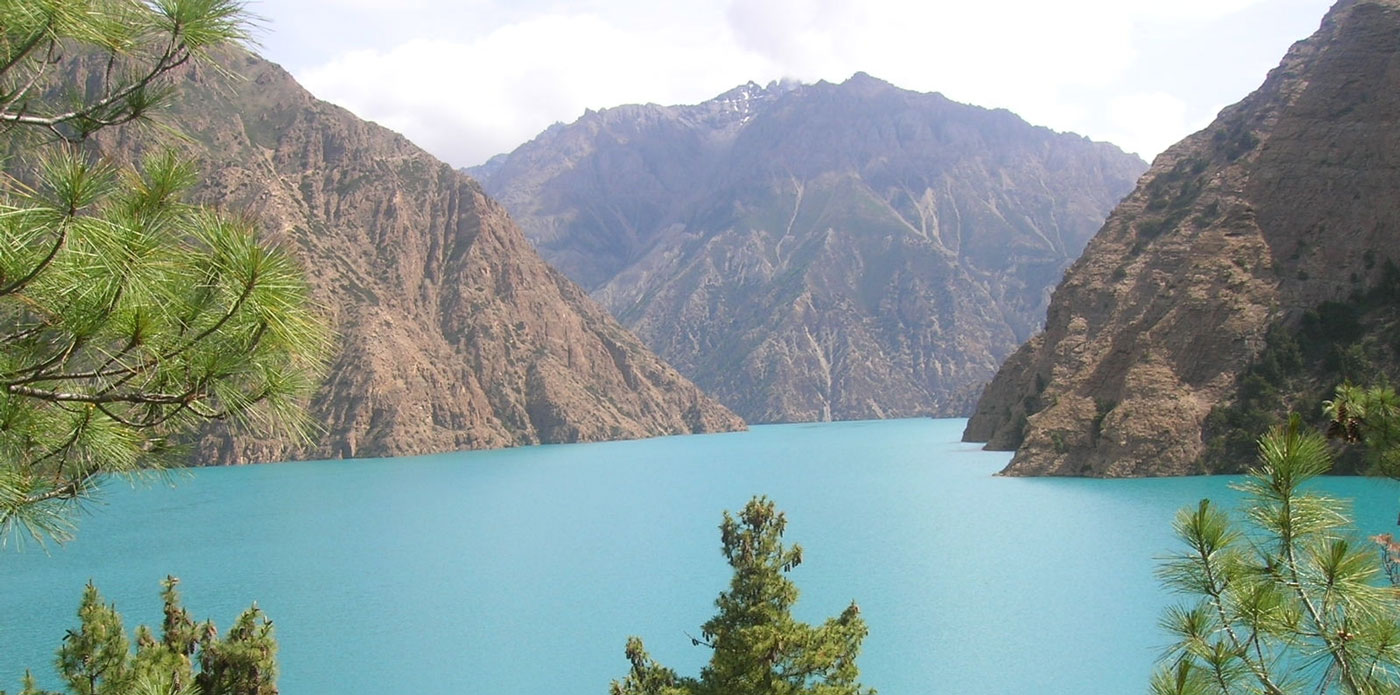
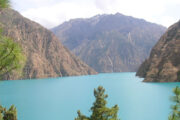
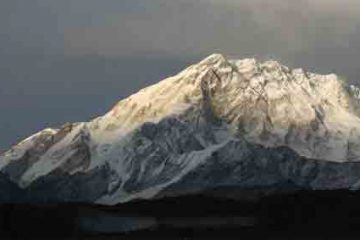
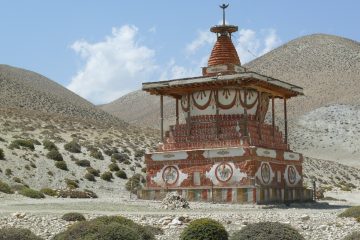
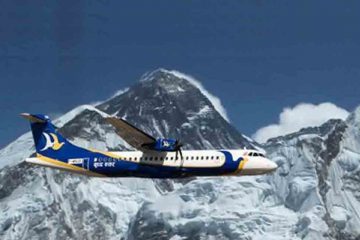
Tour Reviews
There are no reviews yet.
Leave a Review